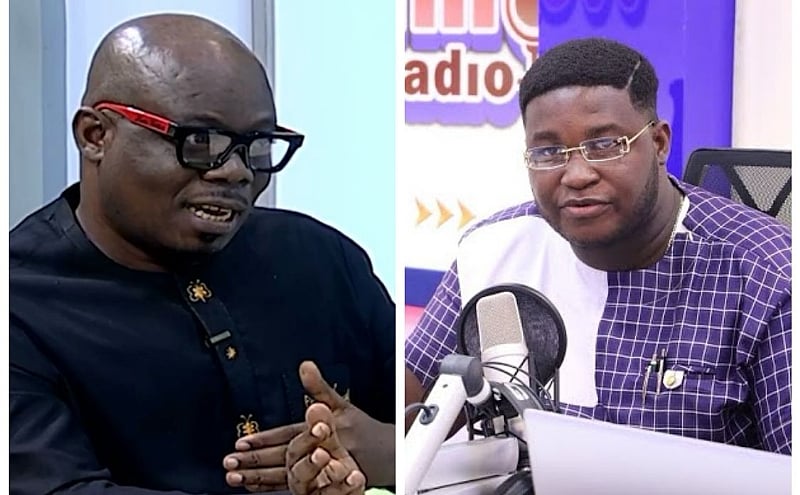The political landscape in Ghana has been stirred by the arrest of New Patriotic Party (NPP) activist Alfred Kumi and the subsequent accusations leveled against him by Ebo Buckman, a member of the Movement for Change’s communication team. Buckman alleges that Kumi, since his return to the NPP from the Movement for Change, has become a pawn in the party’s political machinations, willingly propagating unfounded allegations against their opponents. This incident underscores the often-murky intersection of political maneuvering, personal ambition, and the pursuit of justice within the Ghanaian political arena. Kumi’s arrest, described as a “Rambo-style” operation conducted by the National Intelligence Bureau (NIB), has further fueled speculation and intensified the ongoing political discourse.
The heart of the matter revolves around Kumi’s recent petition to President John Dramani Mahama, urging the dissolution of a five-member committee investigating calls for the removal of Chief Justice Gertrude Torkornoo. This petition, based on an alleged intercepted video, accuses Justices Pwamang and Adibu-Asiedu, along with Supreme Court Justice Yonny Kulendi, of engaging in inappropriate discussions with Thaddeus Sory, the counsel for the petitioner seeking the Chief Justice’s removal. These alleged discussions, reportedly taking place at a restaurant shortly after the committee’s inaugural sitting, have raised concerns about potential bias and undue influence in the proceedings. Kumi’s allegations, however, have been met with skepticism, particularly from Buckman, who views them as politically motivated attacks orchestrated by the NPP.
Buckman’s criticism of Kumi highlights a broader concern about the exploitation of individuals within the political sphere. He argues that Kumi, a young man seeking to advance his political career, has allowed himself to be used by the NPP to disseminate potentially damaging information without proper verification. This, according to Buckman, reflects a lack of political acumen and a willingness to compromise integrity for partisan gains. The implication is that Kumi’s actions not only undermine his own credibility but also contribute to a climate of distrust and political instability. Buckman’s condemnation of Kumi’s behavior serves as a cautionary tale for aspiring politicians, emphasizing the importance of critical thinking and ethical conduct in the pursuit of political objectives.
The controversy surrounding Kumi’s arrest and his allegations further complicates the already sensitive issue of judicial independence and accountability. The investigation into the Chief Justice’s conduct is a matter of significant public interest, and any perception of interference or bias could undermine public confidence in the judicial process. Kumi’s claims, whether true or fabricated, inject an additional layer of complexity into the proceedings, potentially influencing public opinion and raising questions about the integrity of the individuals involved. The situation demands a thorough and impartial investigation to determine the veracity of Kumi’s allegations and to address any potential misconduct within the judiciary.
The unfolding events surrounding Kumi’s arrest and the subsequent accusations raise critical questions about the ethics of political engagement and the role of individuals within the political system. Buckman’s critique of Kumi’s actions serves as a stark reminder of the potential pitfalls of political opportunism and the importance of maintaining integrity in the face of partisan pressures. The situation also highlights the delicate balance between freedom of expression and the responsible dissemination of information, particularly in a politically charged environment where unsubstantiated allegations can have far-reaching consequences.
The ongoing controversy underscores the need for greater transparency and accountability within the Ghanaian political landscape. A thorough and impartial investigation into both Kumi’s arrest and the allegations against the justices is essential to restore public trust and ensure the integrity of the judicial process. Furthermore, this incident serves as a valuable lesson for aspiring politicians, emphasizing the importance of ethical conduct, critical thinking, and a commitment to truth and justice above partisan interests. The future of Ghanaian democracy hinges on the ability of its political actors to uphold these principles and to prioritize the well-being of the nation over personal ambition and political expediency.














